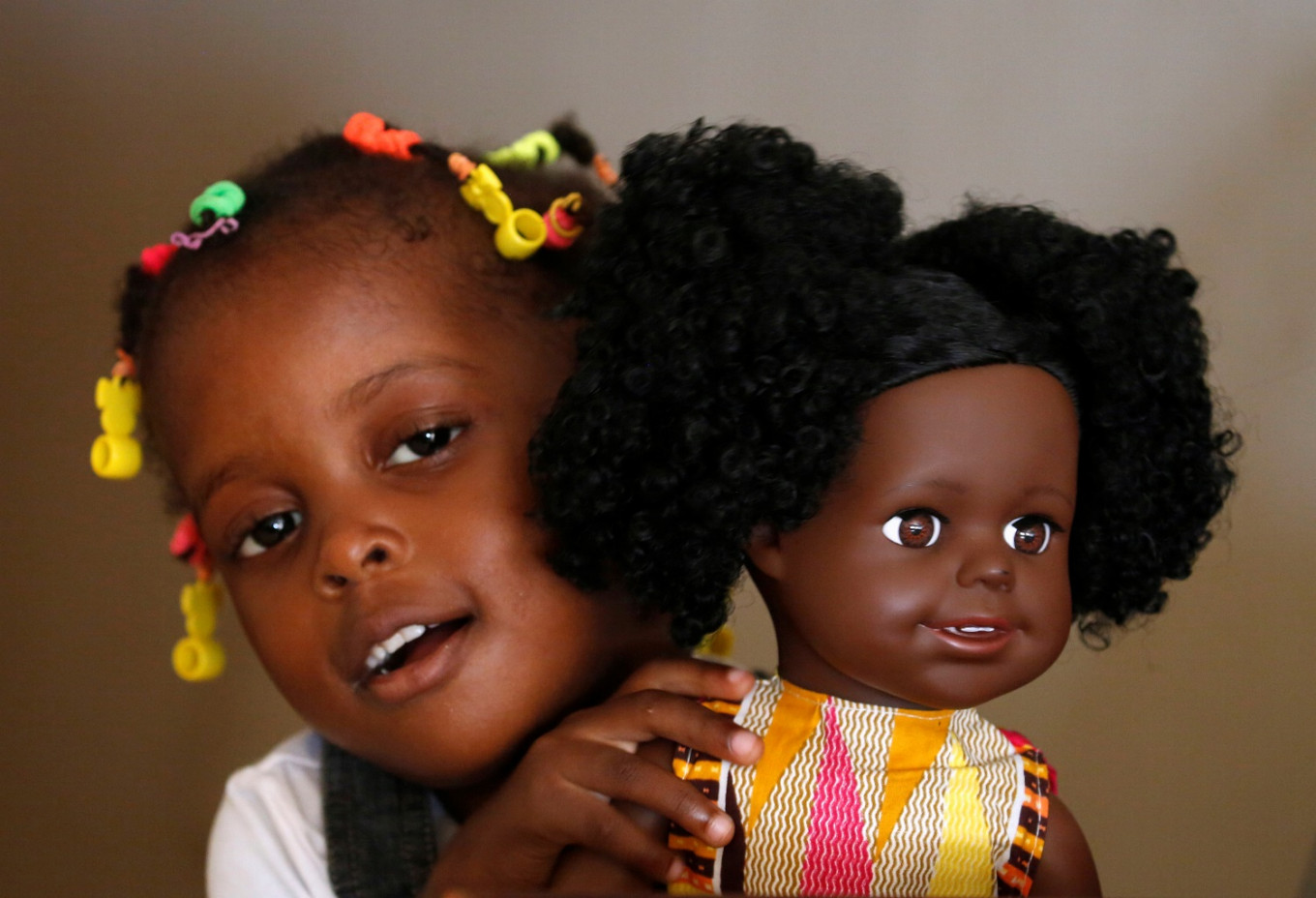Popular Reads
Top Results
Can't find what you're looking for?
View all search resultsPopular Reads
Top Results
Can't find what you're looking for?
View all search resultsIvory Coast company brings Black dolls to African children
Change text size
Gift Premium Articles
to Anyone
F
rustrated by seeing store shelves in Ivory Coast lined with almost exclusively light-skinned dolls, Sara Coulibaly decided to create alternatives in which local children could see themselves.
Five years on, Coulibaly's company Naima Dolls employs around 20 young women who were scrambling on a recent afternoon to package 32 models of dolls with dark skin in time for Christmas.
"Our hope today is to give children the means to make good decisions," she said in her office in Abidjan, decorated with African masks and colorful wax prints.
"I want them to be conscious of the fact that they are beautiful, that their culture is beautiful and their culture is rich," she said, ruing the widespread use of skin-lightening creams across Africa.
The names of Coulibaly's dolls all come from different regions of Ivory Coast. The most popular is Adjoba - or "Born on Tuesday" in the Akan language of the southeast - a two-year-old girl with plump features.
Read also: Rosa Parks, Sally Ride join Barbie's burgeoning social circle
An architect by training, Coulibaly says she draws inspiration for her designs from ideas and people she has met.
The dolls are manufactured in China and Spain, although she hopes to open a factory in Ivory Coast in the next few years to satisfy rising demand. She currently produces 150,000 dolls per year.
At a supermarket in Abidjan last week, Coulibaly's dolls caught the eye of many holiday shoppers.
"We got used to white people's dolls and now we can see Black skin, the African woman," said Aude Koffi as she surveyed the selection. "That is what I liked and that is why I came to have a look."











